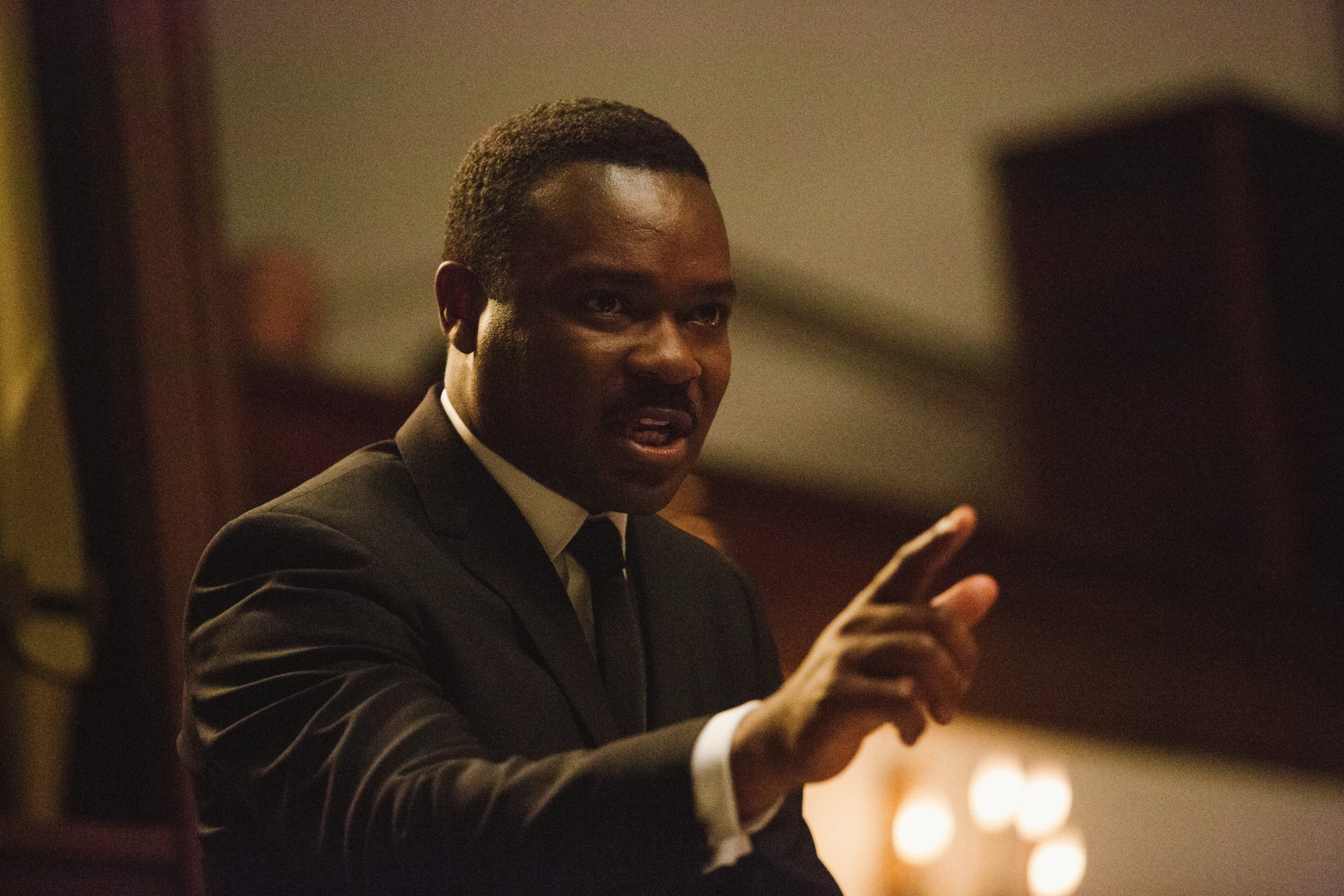
Selma takes us back to the heights of the Civil Rights movement by recreating the historic 1965 march from Selma to Montgomery.
It’s been just over five years since the theatrical release and the film remains just as powerful. The biggest injustice is that the Academy only gave the film two nominations. That’s right. The film only earned nominations for Best Picture and Best Original Song. While I admit to actively rooting for Birdman that year, you cannot argue David Oyelowo’s award-worthy performance as Dr. Martin Luther King. He should have earned an Oscar nomination. It’s inexcusable that he fell short. The same also goes for Ava DuVernay’s direction. For an Academy that isn’t keen to nominate women, they missed the mark yet again.
The film sets the tone early on with 1963’s 16th Street Baptist Church bombing. It’s only when Annie Lee Cooper (Oprah Winfrey) gets denied the right to vote in which the film’s plot really moves forward. Dr. King (David Oyelowo), after meeting with President Lyndon B. Johnson (Tom Wilkinson), decides to focus on Selma.
When one looks at the March 7’s Bloody Sunday march, it’s certainly hard to ignore what happened then with what’s happening now. A peaceful March shouldn’t end up with people getting beaten for their skin color. However, this also happens to be the norm for Alabama…at least as it was in the 1960s. Two days later, King and company go at it again. In real life, they make it to the end of the bridge and request to pray. In the film, however, they don’t make it across the bridge and walk back to Selma. Unfortunately, civil rights activist James Reeb would be beaten that evening.
Alabama Governor George Wallace (Tim Roth) wasn’t going to hold up anytime soon. It took a presidential address from President Johnson on March 15 to ask for Congress to deliver a new voting rights bill. Dr. King would be by his side when he signed it into law in August 1965.
As powerful as the film is, there are still some issues that I have with it. For one, Rabbi Abraham Joshua Heschel also marched with Dr. King in the Selma Civil Right March. He isn’t present in the film even though he was one of the many Jews to feature prominently in the marches. I understand that the film isn’t a documentary but at the same time, I can’t ignore Rabbi Heschel’s omission especially given the news photos. It also should be voted that the film didn’t have the license to use King’s actual words. In spite of this, they’re still able to capture his persona. And then there’s the issue of President Johnson. The former president’s portrayal has also been questioned by former Atlanta mayor Andrew Young, who was a SCLC activist at the time. The same also goes for former Johnson assistant Joseph A. Califano Jr.
I cannot deny how powerful and inspirational of a film that Selma is. This is out of the question. My biggest problems, as mentioned above, are Johnson’s portrayal and the lack of Rabbi Heschel. For all of the film’s faults, Selma remains an equally powerful film and a stark reminder that there’s more work to be done.
DIRECTOR: Ava DuVernay
SCREENWRITER: Paul Webb
CAST: David Oyelowo, Tom Wilkinson, Carmen Ejogo, André Holland, Giovanni Ribisi, Lorraine Toissaint, Stephan James, Wendell Pierce, Common, Alessandro Nivola, Lakeith Lee Stanfield, Cuba Gooding Jr., Dylan Baker, with Tim Roth and Oprah Winfrey




